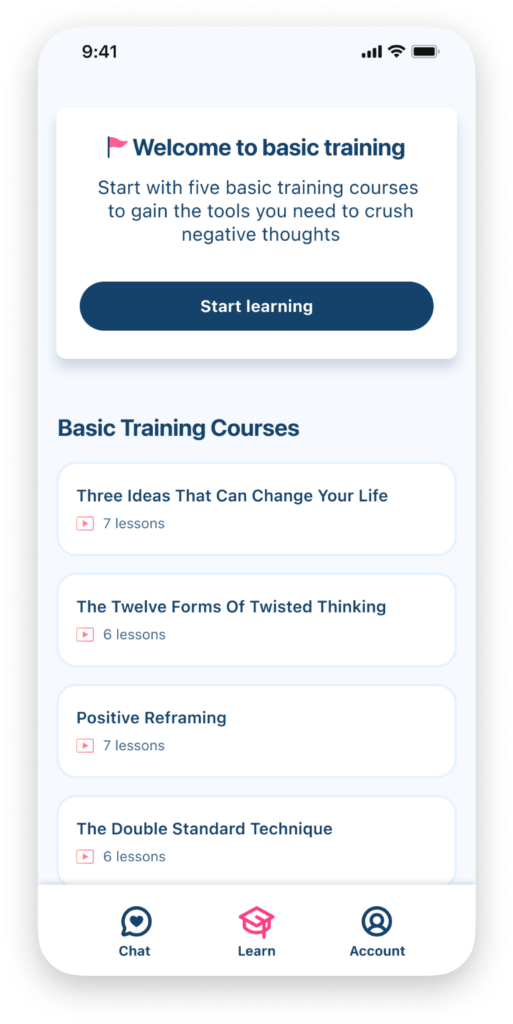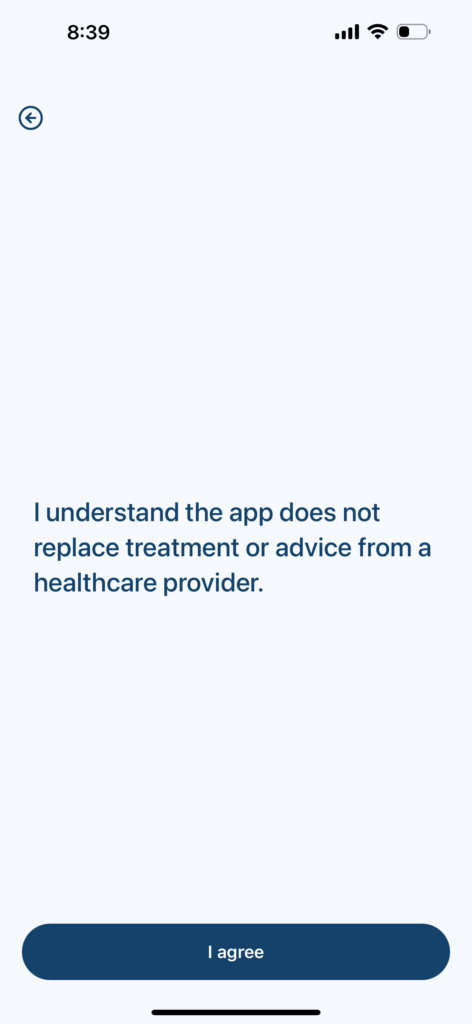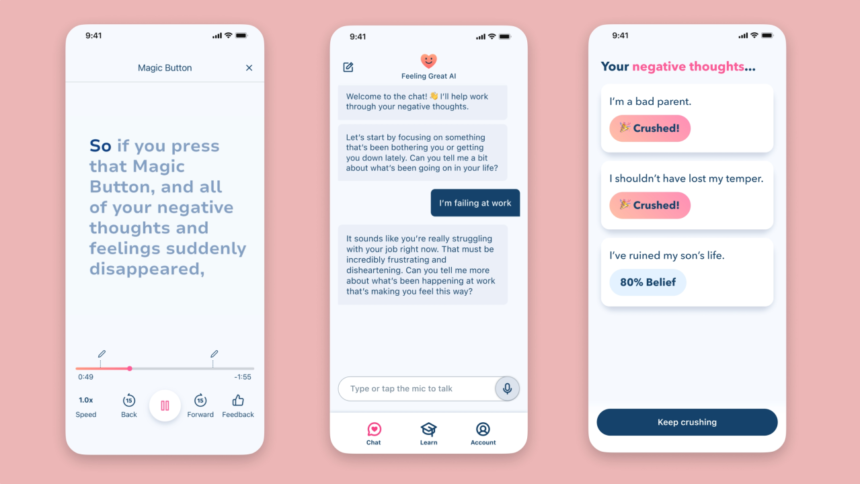Seeking mental health support can be a daunting and complex journey. Yet, some visionaries believe that leveraging AI to standardize effective techniques like Cognitive Behavioral Therapy (CBT) could bring much-needed help to those who may not have access to professional care. Dr. David Burns, a renowned psychiatrist with over 40 years of experience, is at the forefront of this movement. His new app, Feeling Great, encapsulates his therapeutic methods into a digital format, aiming to make mental health care more accessible and impactful.
A Powerful Collaboration: Burns and Karmel
To bring Feeling Great to life, Dr. Burns partnered with Jeremy Karmel, a seasoned entrepreneur known for leading growth teams at DoorDash and Reddit. Together, they have created an app that draws on the principles from Burns’ bestselling book, also titled Feeling Great.
Founded in 2022, the company behind the app has quickly gained traction. Today, they announced an $8 million seed funding round, co-led by Learn Capital and TitleTownTech, with participation from Lux Ventures, WaveMaker Three-Sixty Health, Pacific Health Ventures, and Treble Capital. Alongside this funding announcement, the startup is officially launching the Feeling Great app, which has been in beta testing with approximately 3,000 users.
The company, currently comprising 14 employees, plans to use the new capital to further develop and market the app, expanding its reach and impact.
Bridging the Gap Between Mental Health and Technology
Dr. Burns’ work has long been celebrated for its effectiveness in treating conditions like depression and anxiety. His influence even extends to investors like Rob Hutter, founder and managing partner at Learn Capital, who was inspired by Burns’ teachings years ago after reading his book and attending one of his seminars. When Hutter reconnected with Burns and learned about the app’s development, he was eager to invest, recognizing the potential to scale Burns’ therapeutic methods through technology.

Feeling Great represents a merging of Burns’ deep understanding of mental health with Karmel’s growth-focused mindset, creating a product designed to resonate with a broad audience.
The App: A Comprehensive Approach to Emotional Well-being
The Feeling Great app is built on a foundation of guided lessons that were conceptualized even before the advent of large language models (LLMs). However, the emergence of modern AI has significantly accelerated the app’s capabilities. By translating Dr. Burns’ extensive knowledge into an AI model, the app promises to enhance the process of improving mental health.
“I am thrilled that we’ve developed an electronic tool that doesn’t just reduce feelings of depression—it tackles seven negative emotions at once,”
The app features two core components:
- Interactive Courses: These courses focus on mental health and emotional management, presented through engaging illustrations and storytelling. Users can navigate through a series of lessons designed to help them better understand and manage their emotions.
- AI-powered Chatbot: This chatbot offers a conversational interface where users can discuss their issues and practice techniques to combat negative emotions. The chatbot is grounded in Burns’ T.E.A.M. approach—Testing, Empathy, Assessment of Resistance, and Methods—designed to provide empathetic responses and actionable advice.
“We’ve developed an empathy model that deeply connects with users, and an evaluation framework to ensure the AI’s effectiveness in understanding them,” explained Karmel.
The app not only helps users feel better by transforming negative emotions into joy, but it also equips them to handle future emotional challenges. According to Burns, training human therapists to be consistently empathetic can be challenging, but AI can be meticulously trained to deliver empathy on demand.

Importantly, Feeling Great is not intended to replace human therapists. The app includes prominent disclaimers during the onboarding process, reminding users that it is not a substitute for professional therapy and advising those with suicidal thoughts to seek immediate help.
Navigating the Competitive Landscape and Future Plans
The mental health tech space is crowded with apps like BetterHelp and Talkspace, which connect users with therapists, and meditation platforms like Calm and Headspace. In this competitive environment, Feeling Great will directly compete with other AI-driven therapy apps such as Woebot, Wysa, and Sonia.
Rob Hutter of Learn Capital believes that the unique combination of manualized therapeutic approaches and AI makes Feeling Great a standout product. “The LLM revolution enables computational intelligence to communicate with humans in ways that unlock psychological transformation at scale,” Hutter noted.
The founders of Feeling Great emphasized that traditional therapy can be expensive and that therapists aren’t always available when needed. The app, however, is ever-present and can support users in between therapy sessions or when professional help is out of reach.
Looking ahead, the company plans to expand the app’s capabilities, including the development of features like voice-based AI, long-term memory, and an anonymous mode. They also have ambitions to tackle clinical conditions and eventually seek FDA approval for the app’s therapeutic offerings. In 2022, Calm also made a similar move by launching its clinical services.
At launch, Feeling Great will be available to U.S. customers on both Android and iOS platforms. Users can try the app for free for seven days, after which it will require a subscription of $99 per year.
Conclusion
Feeling Great represents a significant step forward in the integration of AI and mental health care. By digitizing Dr. David Burns’ decades of expertise, the app aims to make effective therapeutic techniques accessible to a broader audience. With strong backing from investors and a clear vision for the future, Feeling Great is poised to become a leader in the mental health tech space, offering users a powerful tool for emotional well-being.










